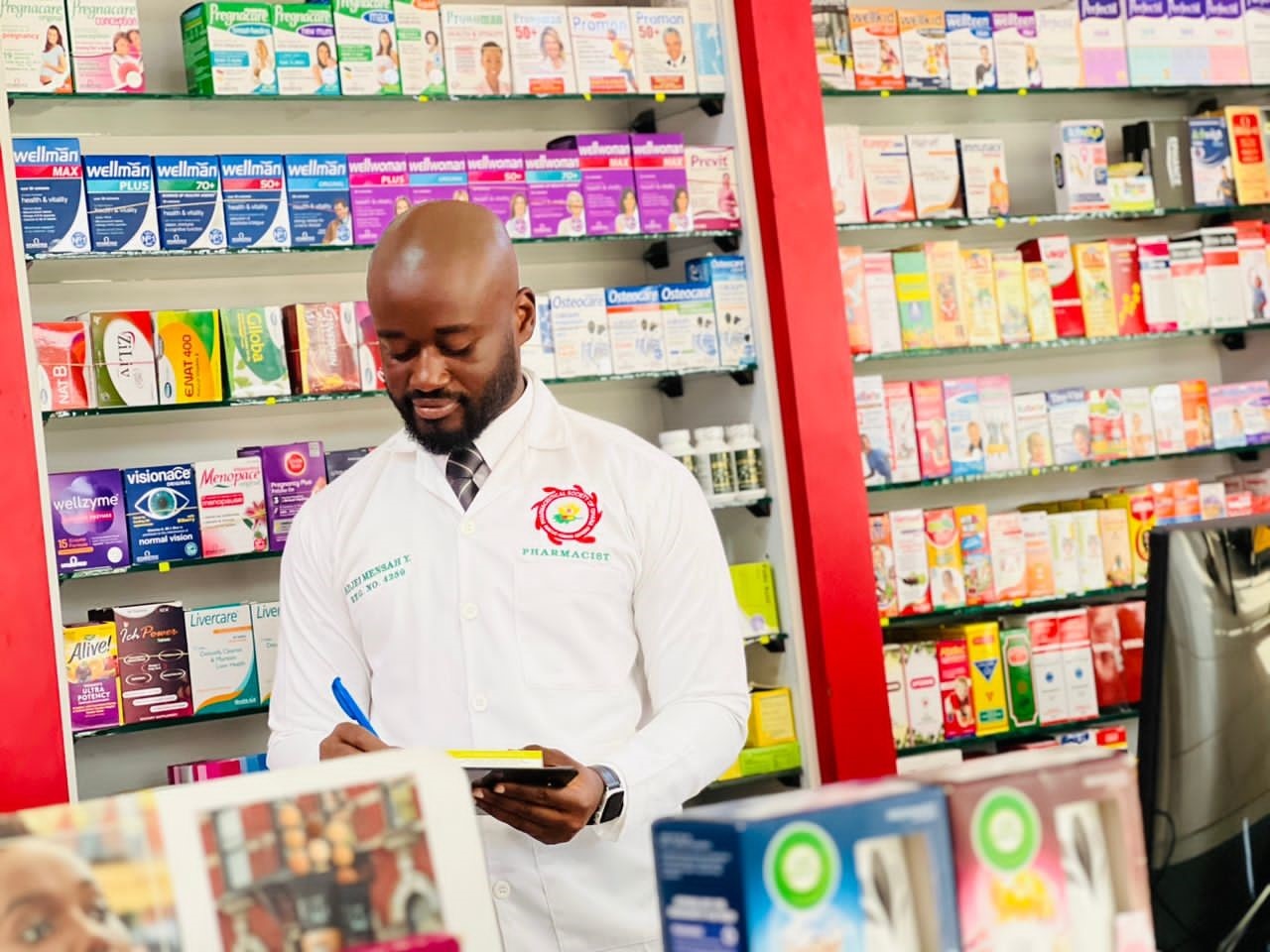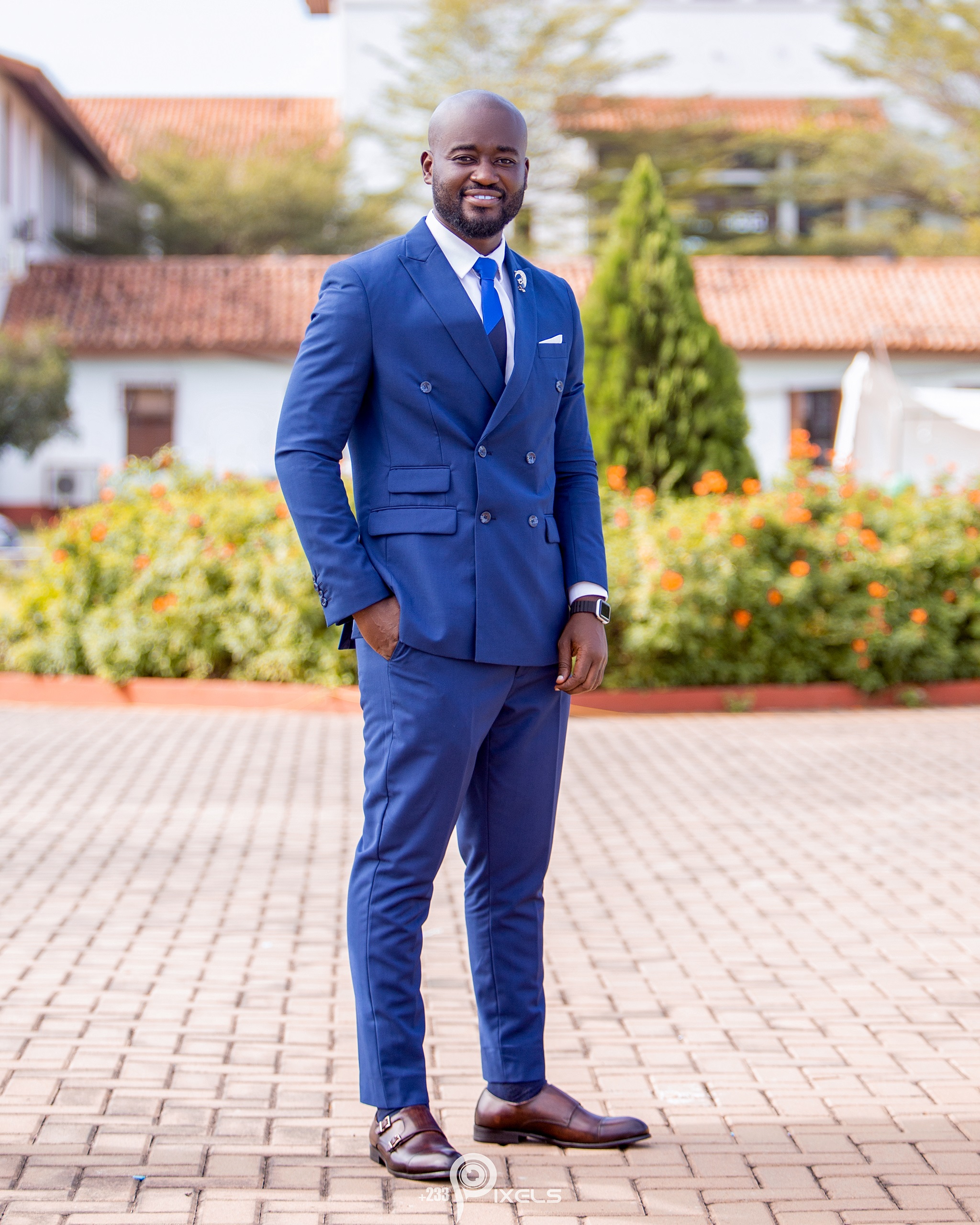
Do you want best results for medications? Talk to a pharmacist
Pharmacy is the branch of science or practice responsible for discovering, producing, preparing, dispensing, reviewing, and monitoring medications.
It aims at ensuring the safe, effective, and affordable use of medicines by patients. Pharmacists are important people because they enhance the health and promote the wellness of patients through the correct interpretation of their prescriptions and administering needed drugs.
Advertisement
Our professional for this week, Dr Kwadjo Yeboah Adjei-Mensah, a pharmacist in Accra who also graduated from the University of Ghana Medical School, Legon recently and, therefore, doubles as a medical doctor, takes us through his working life.
Who is a pharmacist?
A pharmacist is a healthcare professional whose duties include dispensing, prescription of drugs and counselling patients regarding the effects and proper use of drugs. Aside from that, pharmacists see to it that quality drugs are administered to patients.
There are laws governing the supply of medicine and the pharmacist ensures that it is done according to what the law states.
This is why some drugs are called ‘over-the-counter drugs’ which means that they can be bought without a prescription while some drugs are also called ‘prescription drugs’ meaning they have to be bought strictly by prescription.
We give the dosage of drugs to patients taking into account the reactions, and allergies among others. A pharmacist also answers all the questions a patient asks about a particular drug.
How to become a pharmacist
To be able to become a pharmacist, you have to study General Science in senior high school and you should obtain aggregate eight or better. You then have to enroll in a tertiary institution that offers pharmacy.
The current minimum requirement to practice as a pharmacy PharmD (Doctor of Pharmacy) — a six-year course which is more clinically oriented in training. Upon completion, one will take the professional exam, the Ghana Professional Pharmacists Qualifying Examination (GPPQE), and complete a one year housemanship programme to practice in Ghana.
There is also BPharm (Bachelor of Pharmacy) which is a four[1]year course and also qualifies you to practice pharmacy in Ghana. When you complete Bpharm you will also be required to do a one year internship to obtain some clinical skills.
You then have to take the professional exam (GPPQE) to get a licence to practice. In pharmacy school, there are a number of courses you have to study, such as pharmaceutical chemistry, pharmaceutics, pharmacology, anatomy and physiology, among others.
You’ll also be taken through the various branches in pharmacy which include drug compounding (which is the process of combining, mixing, or altering ingredients to create a medication tailored to the needs of an individual patient), community pharmacy, regulatory and pharmacy practice.

Different aspects of pharmacy
One exciting aspect about being a pharmacist is to set up your own pharmacy with your permanent licence which could be a good business venture for you.
Aside from this, you can do community pharmacy, providing health care services to clients. You can provide drug information, clinical interventions, medication reviews, health screening, treatment of minor ailments, counselling on lifestyle modifications among others.
Another aspect is hospital or clinical practice, industrial pharmacy where the pharmacist is responsible for drug formulation or manufacturing. One can also go into Research and Development (R&D) which is closely knit with the pharmaceutical industry.
With all the knowledge acquired after school, you can also decide to go into academia to train upcoming pharmacists. With that, you will need a minimum of a PhD in any pharmacy[1]related discipline to become a lecturer in the pharmacy school.
We also have the pharmacist who works as medical representatives and are responsible for promoting new medications to prescribers and other health professionals — this is basically marketing medications.
Rewards
Pharmacy is a very interesting job because you meet many people with different characters. Some patients become appreciative when you take your time to explain the drugs they have been prescribed to them and this makes the job very fulfilling.
The fact that someone doesn’t only pay me for my services, but comes back to say ‘thank you’ is very gratifying.
The benefits in terms of remuneration are not much although those in the regulatory and manufacturing sectors make a lot of money.
Working as a community pharmacist, doing locums (a stand-in for a pharmacist or doctor) at other facilities besides your main facility, can also be lucrative.
Nonetheless, one main advantage of being a pharmacist is job security. You can never go hungry or jobless as a pharmacist.
The disadvantage is that it could be a bit monotonous if you’re always in the pharmacy shop working for long hours doing the same thing all the time.
A typical day as a pharmacist
I normally start at 4.00 p.m. and take over from the pharmacists who were on the morning shift. Later, I try to reconcile all their sales. If there is any further information concerning a client or other issues, they alert me.
I see patients or clients, read their prescriptions, and serve them. I also sell some over[1]the-counter medicines, pharmacist-only medicine, and explain how a particular drug works, its dosage, and its side effects to clients.
Some patients only walk in for medical advice and I give them that too.




